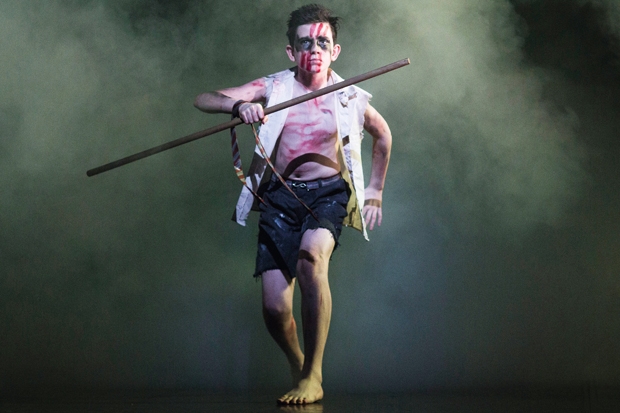GCSE Eng Lit pupils are doing well from dance this season with two set books told in the medium of dance, Arthur Miller’s The Crucible and William Golding’s Lord of the Flies, and even Dylan Thomas gets a look in. As the two stories have similar dynamics and dramatic themes, it was fascinating to see both in a single week and witness how mightily one succeeded and the other did not.
Matthew Bourne is so famed as a rewriter of classical ballets that one might underestimate the boldness of imagination that underlies them. He showed his full daring in his stylish and sinisterly amusing riff on amoral Sixties London, Play Without Words, a few years back, and now again in Lord of the Flies we see a production more sobering and menacing than his family shows (such as Edward Scissorhands, taking the Christmas slot at Sadler’s Wells this year). Lord of the Flies is now winging its way through the country, where you should try to get to it, to see the mute force of the physical as a motivator of human decision-making.
It reminds you that what was so mesmerising about Bourne’s Swan Lake — despite its glamorous sexual ambivalence — was the demonstration that the male swans would kill any of their number who tried to break out. In Golding’s schoolboys, cast away beyond civilisation, prey to their hormones and their desperation to survive, Bourne has found another essay about the psyche of the child, and particularly boys, always his keenest strength. Dance shows what words can’t tell so well — how boys can get drunk on their own animal power and turn feral. In the current zeitgeist it is horribly moving.








Comments
Join the debate for just £1 a month
Be part of the conversation with other Spectator readers by getting your first three months for £3.
UNLOCK ACCESS Just £1 a monthAlready a subscriber? Log in